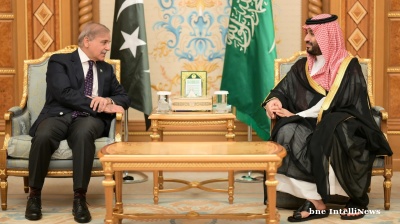Iran’s parliament sacked minister of economic affairs and finance Masoud Karbasian on August 26, removing him with a 137-to-121 vote for failing to satisfactorily deal with the country’s economic turmoil, state media reported.
The Iranian rial (IRR) has lost more than half its value since April while some assessments of foreign economists have put Iranian inflation at more than 200%, compared to the official figure of around 10%. While there is acknowledgement among both hardliners and centrists that Iran’s woes are a result of the “economic attack” unleashed on the country by the US, there is also widespread disappointment that the Rouhani government has not fought back more effectively and suffered from a lack of preparedness.
The Trump administration is attempting to throttle Iran economically. It wants to force Tehran to the table to renegotiate the country’s role in the Middle East. In line with that aim, a first set of heavy US sanctions was reimposed in August, and a second set, including sanctions designed to decimate Iran’s lifeline oil exports, will snap back on November 5.
The Karbasian sacking took place after Iranian MPs also complained of problems in the banking system and with tax regulation. The move comes after the early August firing by Iranian lawmakers of the minister of labour and President Hassan Rouhani’s move last month to replace the much-criticised head of the central bank. On August 5, Iranian authorities detained a vice governor of the regulator who was in charge of foreign exchange, alleging economic crimes.
Elias Hazrati, of the reformist Hope faction, was among MPs who voted to remove Karbasian. He said the government failed to plan for the impact of the sanctions. "We haven't been prepared and we are not prepared now. The only person we could get our hands on was the economy minister. Otherwise, the president should have been impeached," AFP reported him as saying.
Iran faced nationwide protests sparked by economic hardship last December. They spread to more than 80 cities and towns and resulted in 25 deaths. A spate of more such protests has been seen in recent weeks, largely in provincial Iran, while the collapse of the rial and what were seen as unfair rules on who can access hard currency at more favourable official rates caused a big street demonstration involving merchants from Tehran’s Grand Bazaar. Protesters who were marching towards parliament were targeted with tear gas by police.
The head of Iran’s elite Islamic Revolutionary Guard Corps (IRGC), Major General Ali Jafari, said on August 26 Iran was facing a “unique, complicated and sensitive” situation, with both external and internal threats to its security, Tasnim News Agency reported.
Rouhani, seen as a pragmatist and centrist, has appealed for unity in the face of Washington’s economic aggression. Following a summons, the president is expected to appear before MPs within the next few days. He may point the finger at some officials who are not seen as having performed according to expectations during the economic difficulties. Concessions may be needed to hardliners to maintain a united front as the US steps up its sanctions campaign.
News

Iran conducts evening ballistic missile test at Semnan facility
Iran conducts evening ballistic missile test at Semnan range with Sejjil-class system, residents report dramatic launch amid heightened security around military facility.

Pakistan gives Saudi Arabia a landmark Article 5 collective security guarantee
In what is likely to be a game-changing decision, Pakistan, a nuclear power, has given Saudi Arabia an Article 5-like collective security guarantee.
_1758207765.jpg)
Latin America's development gains under threat as one in four live in poverty, UN report finds
UNDP warns of stagnation and rising vulnerability across the region amid "overlapping crises".

GCC's Defence Council approves measures to strengthen defence integration following Israeli attack
Gulf Defence Council condemns Israeli attack on Qatar, approves enhanced intelligence sharing and joint military exercises to strengthen regional defence integration mechanisms.



